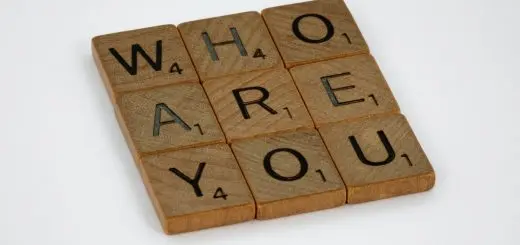Archetypes in Mythology: Exploring Timeless Characters

Looking for more amazing products? Check out our online store and explore our collection here! Happy shopping!
Before diving in, please note: This post is for informational purposes only. If you’d like to know more about how we approach topics, feel free to check out our friendly Disclaimer Page.
Hey there, amazing readers! 
We’re committed to delivering quality posts, and your support (even just sticking around despite the ads) means everything to us. So, bear with us, and thanks for helping us keep the good vibes rolling. Now, on to the fun stuff!
TRANSLATE BUTTON AT THE END OF THE ARTICLE
Introduction to Archetypes in Mythology
In the world of storytelling, archetypes play a vital role in shaping characters that resonate with audiences across cultures and time periods.
These timeless symbols have been woven into myths, legends, and folklore, serving as the foundation for some of the most iconic characters in literature and entertainment.
From the valiant hero to the cunning trickster, archetypes offer a lens through which we can understand and connect with the human experience on a universal level.
In this article, we will delve into the fascinating realm of archetypes in mythology, exploring their significance and enduring appeal.
Understanding the Concept of Archetypes
Archetypes are recurring symbols, motifs, or character types that embody universal themes and qualities.
These archetypal figures represent fundamental aspects of the human psyche and collective unconscious, as proposed by psychologist Carl Jung.
They serve as templates or blueprints for characters in stories, reflecting common human experiences, emotions, and motivations.
By tapping into these archetypes, storytellers can create characters that resonate with audiences on a deep and instinctual level, transcending cultural and linguistic barriers.
The Hero Archetype: A Symbol of Strength
One of the most well-known archetypes in mythology is the hero.
The hero embodies courage, resilience, and a sense of duty to overcome challenges and achieve greatness.
From ancient myths like Hercules and Gilgamesh to modern superheroes like Superman and Wonder Woman, the hero archetype represents the eternal struggle between good and evil, light and darkness.
Heroes often embark on epic quests, facing formidable foes and undergoing transformative journeys that ultimately lead to their triumph and the restoration of order.
The Wise Mentor Archetype in Mythology
The wise mentor archetype is a guiding figure who imparts wisdom, knowledge, and guidance to the hero on their quest.
Characters like Merlin in Arthurian legend, Gandalf in "The Lord of the Rings," and Yoda in "Star Wars" embody this archetype, offering sage advice and supernatural abilities to aid the hero in their journey.
The mentor archetype serves as a source of inspiration and support, helping the hero navigate the challenges and obstacles they face along the way.
Exploring the Villain Archetype in Stories
No story is complete without a compelling villain to challenge the hero and drive the narrative forward.
The villain archetype represents the darker aspects of human nature, embodying traits such as greed, power-hunger, and malevolence.
Characters like Medusa, Loki, and Darth Vader are iconic villains in mythology and fiction, serving as formidable adversaries who test the hero’s resolve and moral character.
The villain archetype adds depth and complexity to stories, highlighting the contrast between good and evil.
The Lover Archetype: Symbol of Passion
The lover archetype embodies themes of passion, romance, and emotional connection.
Characters like Romeo and Juliet, Tristan and Isolde, and Cleopatra and Mark Antony symbolize the power of love to transcend boundaries and inspire great deeds.
The lover archetype explores the complexities of human relationships, highlighting the intense emotions and sacrifices that come with romantic love.
Whether tragic or triumphant, stories featuring the lover archetype resonate with audiences due to their universal themes of desire and longing.
The Trickster Archetype: Mischievous Characters
The trickster archetype is a mischievous and cunning figure who defies conventions and plays pranks on others.
Characters like Coyote in Native American folklore, Anansi in African mythology, and Loki in Norse mythology embody the trickster archetype, using their wit and cleverness to outsmart their foes and challenge societal norms.
Tricksters blur the line between chaos and order, disrupting the status quo and bringing about unexpected outcomes in stories.
Their unpredictable nature adds a sense of excitement and unpredictability to narratives.
The Mother Archetype: Nurturing and Protective
The mother archetype represents nurturing, compassion, and unconditional love.
Characters like Demeter, Mother Mary, and Molly Weasley embody the maternal instinct to care for and protect others, often at great personal sacrifice.
The mother archetype symbolizes the cycle of life, birth, and rebirth, as well as the importance of family and community.
Mothers in mythology and literature serve as sources of strength and guidance, offering comfort and support to those in need.
Their presence adds warmth and emotional depth to stories, highlighting the power of maternal love.
The Warrior Archetype: Courage and Bravery
The warrior archetype embodies qualities of courage, strength, and honor in the face of adversity.
Characters like Achilles, Joan of Arc, and Mulan exemplify the warrior spirit, willing to fight for justice and defend their beliefs at all costs.
Warriors in mythology and folklore often undergo trials of combat, testing their mettle and resolve in epic battles against formidable foes.
The warrior archetype symbolizes the eternal struggle between good and evil, highlighting the hero’s willingness to sacrifice for the greater good.
The Rebel Archetype: Defying Social Norms
The rebel archetype is a nonconformist figure who challenges authority and questions societal norms.
Characters like Robin Hood, Katniss Everdeen, and Malcolm X embody the rebel spirit, fighting against oppression and injustice to create a better world.
Rebels in mythology and fiction often face formidable obstacles and opposition from those in power, yet they remain steadfast in their beliefs and convictions.
The rebel archetype inspires audiences to question the status quo and strive for positive change in the face of adversity.
The Creator Archetype: Bringing New Ideas
The creator archetype represents innovation, imagination, and the power to bring new ideas into the world.
Characters like Prometheus, Daedalus, and Leonardo da Vinci embody the creative spirit, pushing the boundaries of what is possible and inspiring others with their inventions and discoveries.
Creators in mythology and literature possess a unique vision and drive to make a lasting impact on the world through their creations.
The creator archetype celebrates the human capacity for innovation and progress, showcasing the transformative power of imagination and ingenuity.
Conclusion: The Timelessness of Archetypes
In conclusion, archetypes in mythology serve as timeless symbols that resonate with audiences due to their universal themes and qualities.
From the heroic figure to the wise mentor, the villainous antagonist to the nurturing mother, archetypes offer a rich tapestry of characters that reflect the full spectrum of human experience.
By exploring these archetypes in stories, we gain a deeper understanding of ourselves and the world around us, connecting with our shared humanity and collective unconscious.
Through the enduring appeal of archetypes, storytellers continue to captivate and inspire us with tales that transcend time and culture, reminding us of the eternal truths that bind us together as human beings.

The Enlightenment Journey is a remarkable collection of writings authored by a distinguished group of experts in the fields of spirituality, new age, and esoteric knowledge.
This anthology features a diverse assembly of well-experienced authors who bring their profound insights and credible perspectives to the forefront.
Each contributor possesses a wealth of knowledge and wisdom, making them authorities in their respective domains.
Together, they offer readers a transformative journey into the realms of spiritual growth, self-discovery, and esoteric enlightenment.
The Enlightenment Journey is a testament to the collective expertise of these luminaries, providing readers with a rich tapestry of ideas and information to illuminate their spiritual path.
Our Diverse Expertise
While our primary focus is on spirituality and esotericism, we are equally passionate about exploring a wide range of other topics and niches 

To ensure we provide the most accurate and valuable insights, we collaborate with trusted experts in their respective domains 
Our blog originally focused on spirituality and metaphysics, but we’ve since expanded to cover a wide range of niches. Don’t worry—we continue to publish a lot of articles on spirituality! Frequently visit our blog to explore our diverse content and stay tuned for more insightful reads.
Hey there, amazing reader! 
Check out our store here and take a peek at some of our featured products below! Thanks for being awesome!











